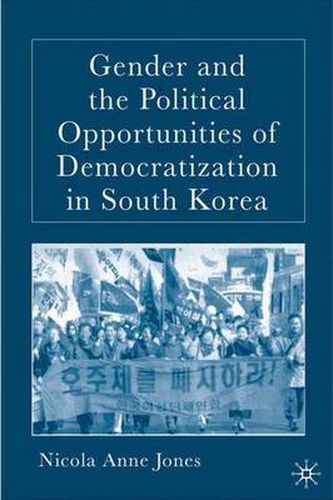Readings Newsletter
Become a Readings Member to make your shopping experience even easier.
Sign in or sign up for free!
You’re not far away from qualifying for FREE standard shipping within Australia
You’ve qualified for FREE standard shipping within Australia
The cart is loading…






This title is printed to order. This book may have been self-published. If so, we cannot guarantee the quality of the content. In the main most books will have gone through the editing process however some may not. We therefore suggest that you be aware of this before ordering this book. If in doubt check either the author or publisher’s details as we are unable to accept any returns unless they are faulty. Please contact us if you have any questions.
This book explores how political opportunities afforded by democratization, including the relative balance of power between conservative and progressive civic actors, shape power relations between men and women in post-authoritarian Korea. Jones reveals that organized women can make a difference - depending on their strategic choices and alliances, and the manner in which they negotiate evolving political institutions. Moreover, democratic consolidation need not be led by political parties, but can provide surprising opportunities for an organized civil society to press for a deepening of political and human rights.
$9.00 standard shipping within Australia
FREE standard shipping within Australia for orders over $100.00
Express & International shipping calculated at checkout
This title is printed to order. This book may have been self-published. If so, we cannot guarantee the quality of the content. In the main most books will have gone through the editing process however some may not. We therefore suggest that you be aware of this before ordering this book. If in doubt check either the author or publisher’s details as we are unable to accept any returns unless they are faulty. Please contact us if you have any questions.
This book explores how political opportunities afforded by democratization, including the relative balance of power between conservative and progressive civic actors, shape power relations between men and women in post-authoritarian Korea. Jones reveals that organized women can make a difference - depending on their strategic choices and alliances, and the manner in which they negotiate evolving political institutions. Moreover, democratic consolidation need not be led by political parties, but can provide surprising opportunities for an organized civil society to press for a deepening of political and human rights.